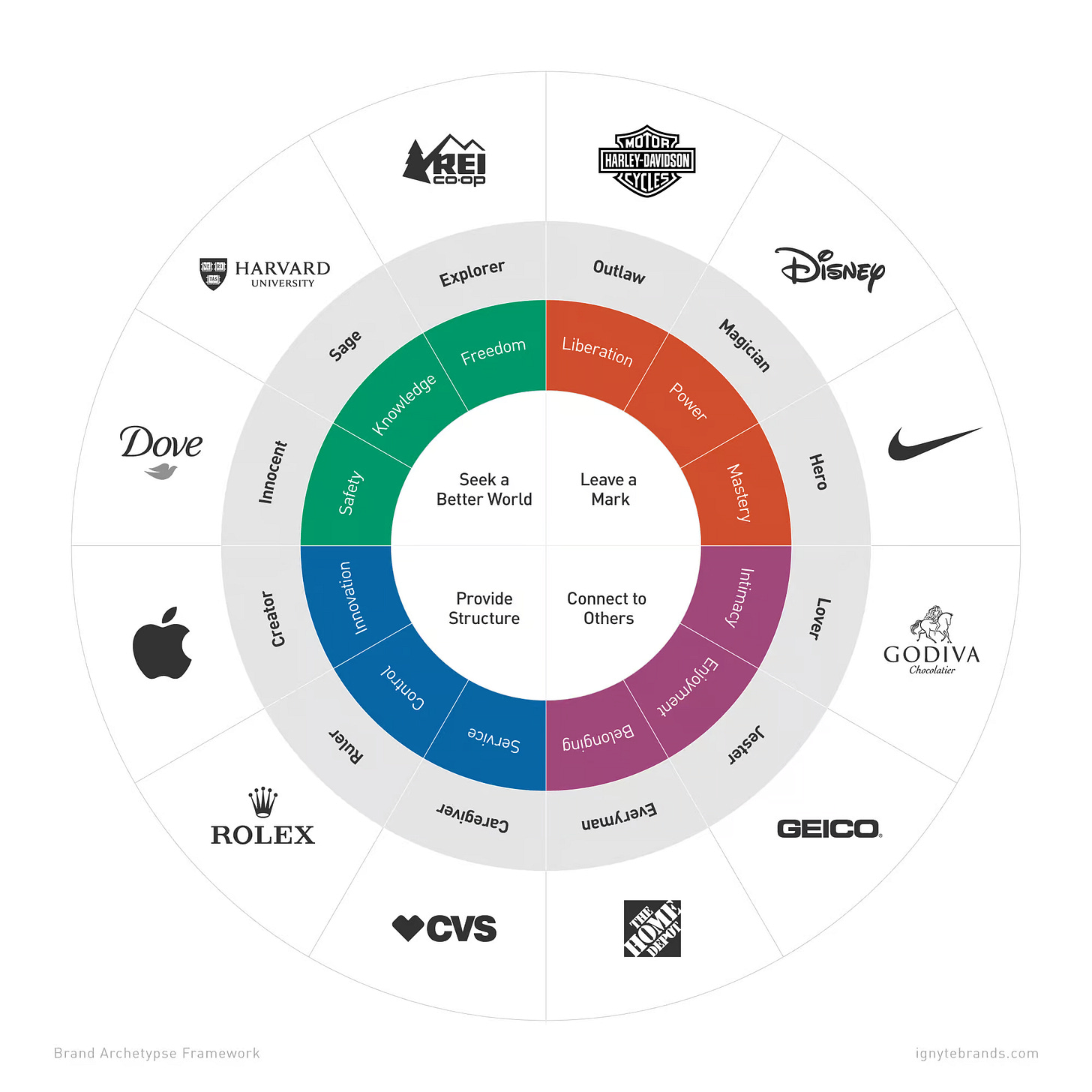How Storytelling Won the Election
In uncertain times, Canadians didn’t just vote for a plan, they voted for a familiar narrative arc.
It’s been a week since the federal election. I followed the campaign closely, but it wasn’t until I watched the new Prime Minister’s press conference on Friday that something clicked: the entire arc of federal politics over the past few months fits, almost perfectly, what marketers and storytellers call brand archetypes.
Brand archetypes fall into a handful of familiar narrative roles — the Hero, the Outlaw, the Sage, the Ruler, the Caregiver, the Everyman, and so on (see the full list below). Brands use them to shape their voice and position themselves as compelling characters. Novelists use similar ideas to create conflict and tension. And politicians use them — consciously or not — to embody values and connect with an audience. Audiences respond, almost instinctively, because these archetypes are patterns we’ve been trained to recognize for generations.
Once you start looking, you see these archetypes everywhere. Luke Skywalker is the Hero. He starts small, dreams big, and is called to a larger destiny. King Lear, in his tragic unraveling, fits the Ruler archetype — clinging to power, losing control, and eventually learning too late what truly matters. Or think of Robin Hood, the Outlaw — a rule-breaker with a moral cause, fighting injustice from the fringes.
These archetypes aren’t just storytelling devices — they reflect human instincts about leadership, justice, and transformation. They help craft stronger narratives, spot shifts in public appetite, and decode why certain messages resonate while others fall flat. In politics especially, the power of the story isn’t just in what you say — it’s in who you are when you say it.
Back to federal elections.
Justin Trudeau in 2015 rose as the Hero: from third-place underdog to winning a majority. His message was a message of redemption after a decade of Stephen Harper’s Ruler energy, who got us through the 2008 financial crisis — controlled and calculating. Trudeau embodied a quest for change.
Heroes are effective when people crave movement, hope, and the emotional swell of a national story. Barack Obama also fits the Hero archetype.
But archetypes have arcs. And Heroes can overstay their welcome, especially when the dragons they once slayed reappear, or when the quest starts to feel circular.
Enter Pierre Poilievre, stage left. The Outlaw.
The Outlaw can often be a natural nemesis of the Hero. He rages against elites, institutions, gatekeepers and makes the Hero feel cheesy and uncool. He doesn’t ask permission, and he doesn’t apologize. Brands like Red Bull and Harley-Davidson exemplify this archetype.
For a time, that energy worked for Poilievre. In a post-pandemic landscape of inflation and fatigue, his edginess definitely resonated.
But Outlaws flourish when the system holds just enough to push against. Otherwise, they make us feel uneasy.
When Trump started making and implementing threats, a new mood crept in. The Outlaw archetype loves a fire to dance around. But when the fire spreads? That’s when people start looking for the Sage.
Which is exactly the archetype Mark Carney stepped into — a technocrat, intellectual, with a big résumé, and educated in the best schools. Not flashy, a little bit old-school, a little bit bland — but hey, don’t us Canadians just love that? (Cue Trainspotting reference)
Sages don’t shout. They guide. They interpret. They make sense of complexity. For example, Atticus Finch, or in branding terms, the BBC. Sages aren’t warriors, they’re cartographers. When the map feels lost, you turn to them.
Trump didn’t just shift the geopolitical landscape — he changed the narrative arc of the election, inviting new archetypes into the story.
To those who don’t like Carney, Poilievre, or Trudeau: the point isn’t whether any of them truly are Sages, Outlaws, or Heroes. It’s just the role they played. The image they projected. The story they told.
In uncertain times, Canadians didn’t just vote for a plan, they voted for a familiar narrative arc. That’s how storytelling won the election.
Discover more about brand archetypes:
https://www.ignytebrands.com/unlocking-the-power-of-brand-archetypes/




